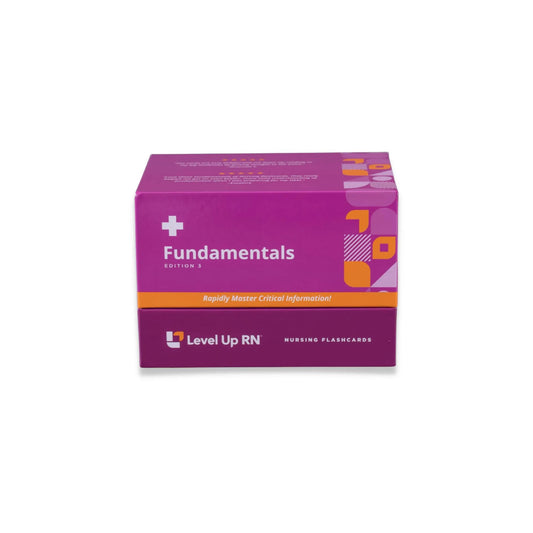Fundamentals - Gerontology, part 8: Communication Practice for Aging Adults
Updated: Ellis ParkerThe best practices in communication techniques for engaging with older adults.
Full Transcript: Fundamentals - Gerontology, part 8: Communication Practice for Aging Adults
Full Transcript: Fundamentals - Gerontology, part 8: Communication Practice for Aging Adults
Hi, I'm Ellis. And in this video, I'll be discussing best practices as it relates to effective communication with older adults. This card can be found in the gerontology section of our fundamentals flashcard deck, so if you have it, go ahead and grab it, and you can follow along with me. Best practices for effective communication with older adults is really impacted by sensory and neurological changes. So the first thing you need to consider is that you need to allow ample time for that communicating and potentially provide rest and breaks during those sessions. So if you're doing a longer interview or assessment, it might not be beneficial to power through. You might need to do some and leave and come back. And when you're communicating with the older adult, it is imperative that if they have a sensory deficit and if they have an assistive device, that those are in place and that they're functional, right? If they have hearing aids or glasses or whatever it is, they're not helpful if they're not functional, right? A hearing aid in my ear isn't going to do anything if the battery is dead. If we're using anything that they need to see, so if they're reading anything, make sure we're in a room with adequate lighting. And if necessary, make the fonts a little bigger on whatever it is that we're reading.
Asking questions should be done one at a time. Don't ask a bunch of questions in quick succession because it can take them just a little longer to process each question. So you need to ask one question and wait for a response before following up with an additional question. For patients with hearing loss, we need to try to control the environment. So a big key in that is to turn off the television, turn off the TV, right, reduce the background noise as much as possible. Maybe that even involves closing the door. We can get the patient's attention before we start speaking so that they're focused on us. And we should be facing the patient so they can see our facial expressions and perhaps even see our lips freely. It is critical to please not yell at people. Don't shout. Don't raise your voice. That is not helpful. If they can't hear you, they can't hear you. A recommendation I may have if they're experiencing presbycusis, right, that bilateral age-related hearing loss, right? If you recall, they are more apt to lose the higher frequency first. So if you can just lower the tone of your voice, sometimes it really helps for them to be able to hear you if you do that. And if someone is having a hard time understanding you, instead of just repeating yourself over and over and louder and louder, usually try to rephrase it. Say it in a different way and maybe that can help with their ability to hear and understand what you're saying.
How should you assist a patient who's experiencing a sensory deficit and uses an assistive device? Ensure that those devices are in use and that they are functioning properly. Name at least one technique that you can use to improve the communication between you and a patient who is experiencing hearing loss. Decrease background noise. You can turn off the television, gain their attention before you start speaking, and to make sure that you're facing the patient, and that they can see your face and mouth. What should you do if a patient is having trouble understanding what you're saying? You should try rephrasing it and not just keep repeating the same thing.


